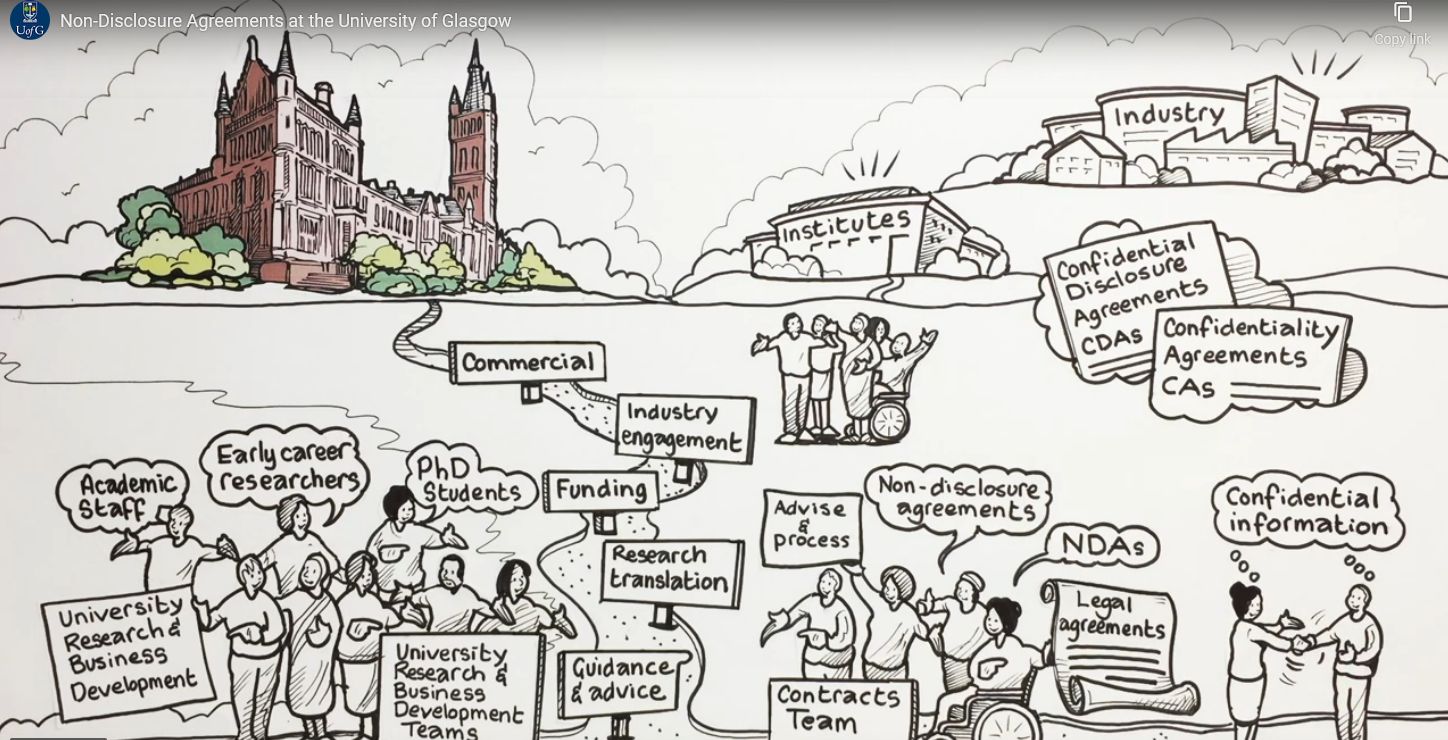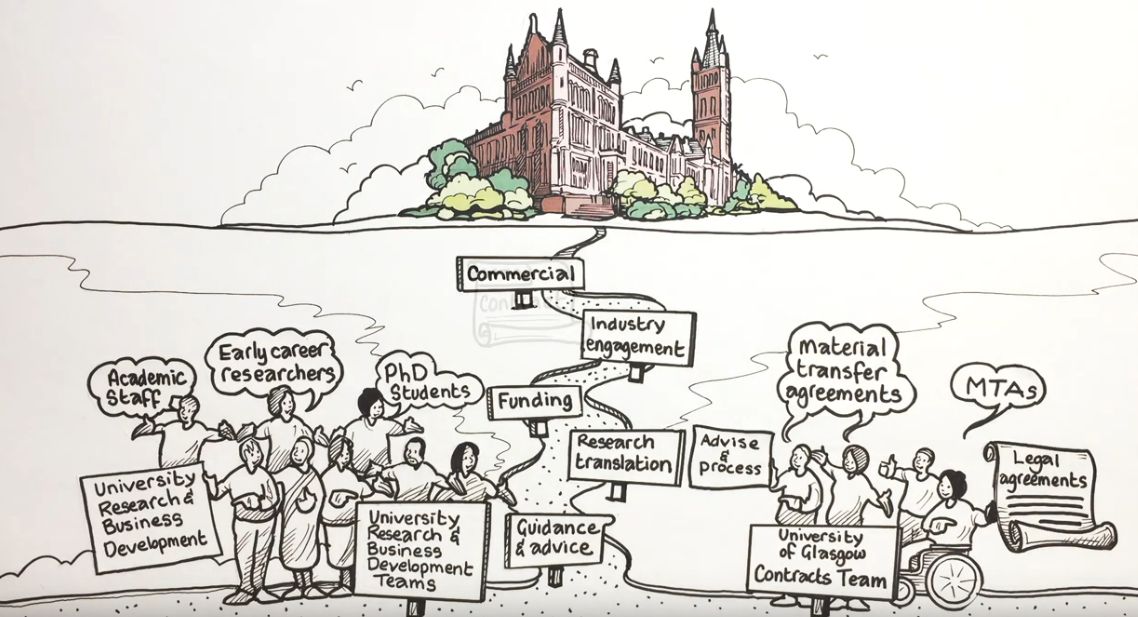Research contracts and agreements
Public disclosure of research information can hinder the ability to patent and create license deals, spin-outs, publications and/or undertake clinical trials.
Find out where and when Non-Disclosure Agreements (NDAs) and Material Transfer Agreements (MTAs) are necessary when collaborating with other institutions or industry partners to create impactful research.
Below you will find information on how such legal documents should be put in place to protect research undertaken at the Univerity.
Useful links
Non-Disclosure Agreements (NDAs) at the University
Download the NDA video transcript
Non-Disclosure Agreements (NDAs)
There are four styles of NDA that the contracts team typically uses:
One-way student work placement NDA
This is an agreement between a student, the University and a company. It is used in situations where a student is studying for a postgraduate degree and the company has agreed to the student completing a work placement. It is restrictive, in that the student and the university may use the confidential information to enable them to conduct their research.
One-way NDA
Where either the University or the company individually owns all IP. There are a couple of circumstances where this type of NDA is used. The first is where the university already owns all IP and intends to work with a company. Here, the NDA protects the University’s IP from exploitation by the company without appropriate recognition or payment to the university and researcher. The second is where only a company wants to protect its own IP. For example, when the university buys equipment from a company who deem the information provided before purchase to be commercially sensitive.
Two-way NDA
A two-way or ‘mutual’ NDA is used when both the University and another party want to discuss working together. This allows each party to freely disclose their confidential information to the other. This is similar to a two-way NDA, except each of the three or more parties in the agreement will be subject to and bound by the confidentiality obligations of the agreement.
Three-way (or multilateral) NDA
This is similar to a two-way NDA, except each of the three or more parties in the agreement will be subject to and bound by the confidentiality obligations of the agreement.
Material Transfer Agreements at the University
Download the MTA Video transcript
Material Transfer Agreements (MTAs)
MTAs are contracts that govern the transfer of materials from a provider to a recipient who intends to use it for their own research purposes (i.e. non-commercial use). This could be from academia to industry or another institute and vice versa. This agreement typically covers biological materials such as reagents, cell lines and plasmids but can also be used for chemical compounds and software, or anything else with scientific or commercial value. All of which come under the term ‘materials.’
There are two types of MTA:
- an MTA ‘in’, where material is being sent to the University by a provider
- an MTA ‘out’ where material is being sent by the University to another party.
An MTA can also:
- define and negotiate the ownership rights of any resulting intellectual property (IP), inventorship, publications and confidentiality
- provide information regarding which party owns the original material
- disclose each party’s access to outputs from the agreement
- put requirements in place for what happens to a material at the end of the agreement
- specify any risks involved and identify any legal provisions that are required such as regulations, reporting requirements, warranties or indemnities.



